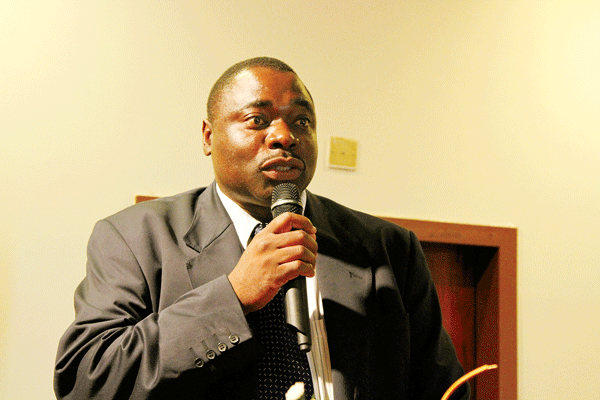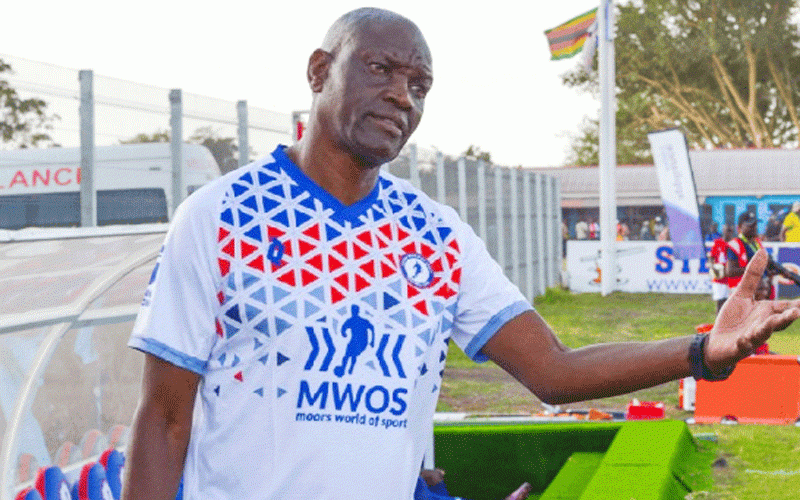
THE Premier Soccer League (PSL) has given local clubs the green light to reduce gate charges from a minimum of $3 to $2 for the cheapest ticket in a desperate bid to lure more spectators to the stadiums.
BY MICHAEL KARIATI

PSL CEO Kennedy Ndebele said the new move was agreed to by all the 18 topflight clubs, including Dynamos and Highlanders, who have in the past objected to such a move preferring instead to increase charges.
“We debated the issue of gate charge reduction. We settled for a minimum of $2, which is optional although $3 remains the standard figure. So whoever wants to reduce gate charges is free to do so as long as the league is informed,” Ndebele said.
Many Zimbabweans are turning away from the game because they have little to spare for football in light of the prevailing economic hardships.
Ndebele said it was up to the clubs themselves to decide which games warranted a reduction of gate charges, adding that they only needed to notify the PSL of their decision before effecting the change.
In the past, clubs only increased charges to about $5 for the cheapest ticket in matches involving Dynamos against Highlanders or Dynamos against CAPS United and never reduced charges even if it was a low-key game featuring some of the smaller teams.
Ndebele said they would soon meet to discuss ways to make football matches affordable to the common people, who form the majority of the population, while at the same time remaining a viable business.
- Chamisa under fire over US$120K donation
- Mavhunga puts DeMbare into Chibuku quarterfinals
- Pension funds bet on Cabora Bassa oilfields
- Councils defy govt fire tender directive
Keep Reading
“We are going to meet as an assembly and see what also needs to be done. But I think, the clubs need to market their games more,” he said.
The PSL has suffered a dramatic decline in crowd attendances, with only 22 000 fans paying to watch the nine matches lined up for the opening day of the 2017 Castle Lager Premier Soccer season.
The figures dropped significantly last week when only 17 200 people paid to watch the same number of matches.
Last season only 400 000 paid to watch premiership football the whole year compared to 643 293 in 2012.
But the liquidity crunch gripping the country and the arrival of pay per-view television channel SuperSport to beam live games could have contributed significantly to the decline in the numbers of people attending the matches in recent seasons.
Top clubs like Dynamos and Highlanders, who used to attract an average 13 000 to 15 000 paying spectators during their home games, have also been affected, with the number significantly going down to around 7 000.
The situation is obviously grimmer for the other PSL teams which don’t have a significant following as they continue to bear the brunt of the prevailing situation, with several games failing to attract above 100 paying supporters during the last three seasons.
The PSL league match between army side Black Rhinos and Chapungu at the National Sports Stadium last Saturday attracted just 120 fans.
In Bulawayo only 121 fans went to Barbourfields Stadium to watch the match between Bulawayo City and 2015 PSL champions Chicken Inn, while only 171 fans went to Luveve to watch How Mine take on Tsholotsho FC.
Ndebele was nevertheless quick to point out that the dramatic decrease in attendance figures at football matches was not peculiar to Zimbabwe only as Uganda, Kenya and Tanzania have also been affected.
“In Uganda and Tanzania, for example, they have had to change their playing times, and playing days,” he said.
Ndebele, however, said the issue of televised European football was something which they would have to live with, adding that what needed to be done was to find a solution to their own crisis.
The continued decrease in the number of spectators at local football matches could spell doom for some of the clubs that survive on gate takings as their major source of income due to lack of sponsorship.
However, even if they mark their entry fees higher, the clubs continue to struggle to make ends meet as only a few people are going to the stadiums.











